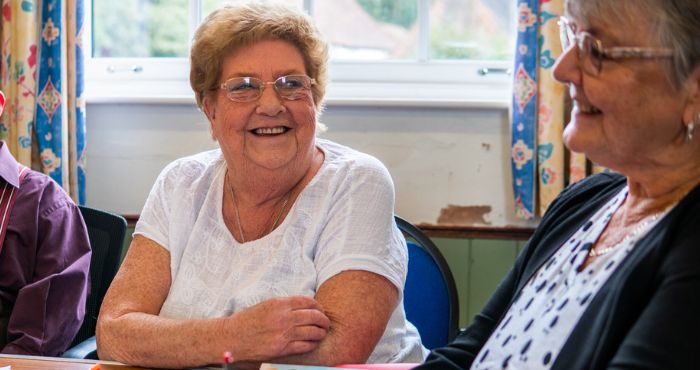The impact of loneliness on older people in the UK

Loneliness has long been recognised as an issue affecting people of all ages, but it is particularly significant among older people.
When I think about people in my life living alone and not speaking to anyone for a couple of days, it breaks my heart. That’s why something as simple as befriending is so important. A phone call or a visit from someone can mean the world and make someone’s day or week.
As people are living longer, the aging population is rapidly growing and so is the impact of loneliness on the mental and physical wellbeing. Recent research, highlighted in a thought-provoking study published in The Times, sheds light on a distressing consequence of loneliness: brain shrinkage. I had no idea loneliness could have that kind of physical impact.
The study referenced in The Times, titled "Isolation in Old Age Linked to Shrinkage of the Brain," draws attention to a concerning connection between loneliness and the shrinking of brain structures. Conducted by a team of researchers, the study found that older adults who experienced chronic loneliness showed a significant decrease in the volume of grey matter in the brain's regions associated with memory, learning, and emotional processing.
The job of the grey matter is to process information, the age-old phrase ‘use it or lose it’ came to mind. If we’re lonely and not having that social interaction, it impacts our feelings, our mental health but our brain’s ability to process information too. This sounds to me like a cycle -you’re lonely and missing that interaction, so you can’t process information as well as you once could, so then you get into a loneliness spiral as you feel you can’t do anything about it (due to your wellbeing and a possible change in brain power).
Loneliness is not just an emotional state; it also has profound implications for mental health. I think the issues in recent years like the Covid-19 pandemic and the cost-of-living crisis are bound to have massive effects on the feelings of loneliness and on general wellbeing in the older generation. The National Institute for Health and Care Research found that older people who experience loneliness are at a higher risk of developing mental health conditions such as depression and anxiety.
The lack of social connections and meaningful relationships can lead to feelings of sadness, hopelessness, and worthlessness. This shows you the importance of saying “hello” to someone in the street, smiling at them or checking in on your elderly neighbours.
To add to the effect on mental wellbeing, studies have shown that older adults who feel lonely are more likely to experience a range of health problems, including cardiovascular issues, compromised immune function, increased inflammation, and higher mortality rates.
The isolation associated with loneliness can contribute to a decline in overall physical health, making older individuals more vulnerable to various age-related illnesses. I think many of us can relate to this seeing a grandparent decline in health after their partner has died.
But I do believe it doesn’t have to be all ‘doom and gloom’. The question is, what can we do about it?
It’s crucial for society as a whole to recognise the significance of this issue and take proactive steps to address it. The Government’s strategy for tackling loneliness, titled ‘A Connected Society’ demonstrated that ‘loneliness can affect anyone and everyone, with major impacts on health and wellbeing, and laid the foundations for a generation of policy work’.
The strategy’s work continues on, five years after the initial launch, we have a Minister of Loneliness who will be helping to deliver on three main objectives.
-
Reducing stigma by building the national conversation on loneliness, so that people feel able to talk about loneliness and reach out for help.
-
Driving a lasting shift so that relationships and loneliness are considered in policy-making and delivery by organisations across society, supporting and amplifying the impact of organisations that are connecting people.
-
Driving a lasting shift so that relationships and loneliness are considered in policy-making and delivery by organisations across society, supporting and amplifying the impact of organisations that are connecting people.
-
Playing our part in improving the evidence base on loneliness, making a compelling case for action, and ensuring everyone has the information they need to make informed decisions through challenging times.
If you want to find out more about the strategy and what actions are needed to tackle loneliness, read Tackling Loneliness annual report March 2023.
Organisations and charities like MHA offer life-enhancing support. Encouraging older people to join in with social groups, lunch clubs and volunteer opportunities, resulting in social connections, fostering a sense of belonging and reducing feelings of isolation. But it’s also important to offer options for people who can’t leave the house, like befriending both telephone, online and in-person, home visits and assistance with shopping.
If you’re reading this and want to help in some way, every small action acts like a ripple effect to something bigger so I would urge you to pledge to help end loneliness in some way today. You could start small by saying hello or chatting with an older person at the bus stop. Or do you have time to volunteer? Could you call an older person every week?
I hope so.


